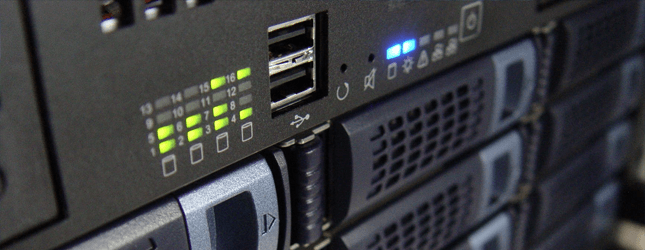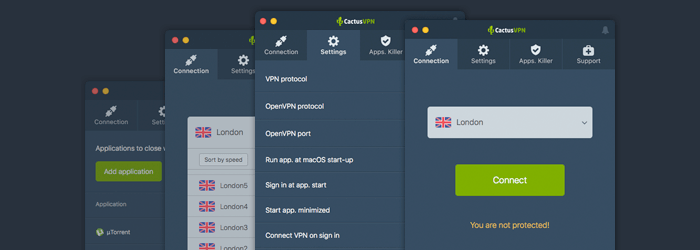How to Choose the Best VPN Server Location

Selecting the best VPN server location can be difficult if you are new to VPNs. Even people who have been using VPNs for a while can encounter difficulties sometimes.
Well, don’t worry – we’ll go ahead and explain what things you need to keep in mind when choosing a VPN server.
Table of contents
Before we get to that, though, let’s cover a few relevant topics regarding VPN servers.
What Is a VPN Server Anyway?
A VPN server is normally a standard server that is configured with VPN server software. It enables providers to host and deliver their services. Though, unlike other servers, it tends to have more logical and physical communication ports.
VPN users can connect to a VPN server, and have their own IP addresses replaced with the server’s address. Also, before they actually get access to the VPN, they connect to the server which authenticates them.
VPN servers can either belong to the VPN provider, or they can be rented from third-party providers – usually data centers. The servers can also be physical machines (dedicated servers) or Virtual Private Servers (VPS). Cloud servers can also be used, but they aren’t deemed too reliable by VPN providers since they reside in a “shared” virtualized environment.
Dedicated servers are more ideal since only the VPN provider makes use of them. With a VPS, on the other hand, the provider has to share the physical host machine with other clients who rent it.
VPN Location vs. VPN Server Location
These 2 terms might seem similar, but they really aren’t. A VPN server location is the physical place where the server is located – the country, for example. A VPN location normally refers to the country where the VPN provider is located, or the country the provider is incorporated in.
Usually, the best VPN locations include countries where the providers don’t need to worry about laws forcing them to hand over user data, like Gibraltar, Moldova, or Switzerland.
How Important Is Choosing the Right VPN Server Location?
It’s fairly important, given that it can influence your online experience. Plus, you’d probably want to get the most out of your VPN usage and the money you pay for it, and choosing the right server is an important part of that.
For example, there’s a chance that choosing the wrong VPN server (for your needs, of course) could result in slower speeds or less privacy.
How to Choose the Best VPN Server Location
Usually, any VPN server can deliver a decent experience. But if you have a specific goal, you need to choose the right one.

So, here are the factors you need to consider when choosing the right VPN server location for you:
1. The Distance Between You and the Server
If you connect to a VPN server location that’s quite far from your own geographical location, you might experience slower connections. Why? Because it takes longer for data packets to be passed between your device(s), the VPN server, and the websites and services you’re accessing.
To avoid high latency issues, it’s better to connect to a server closer to you if online speeds are important for you.
For example, if you’re located in Italy and have a standard 100mbps Internet connection, you’re likely to get better speeds if you connect to a server based in Europe (90-95mbps, for instance) than one in the US (potentially 5-15mbps). The numbers are just an example, and they can vary for each user.
And, obviously, if you connect to a VPN server that’s located in your own country, you’ll get the best results in terms of connection speeds.
2. If the Server Allows P2P or Not
If you want to engage in file-sharing, it’s ideal to connect to a server where you get decent speeds (so, likely one that’s closer to your location).
However, the most important thing is to choose a server that has “P2P support.” What do we mean by that? Well, keep in mind that P2P isn’t allowed in all countries. In some places, it’s actually illegal. So, there’s a chance not all servers on a VPN provider’s network will allow torrenting. Usually, reliable VPN providers will make it clear which servers offer P2P support for legal torrenting.

However, if the provider doesn’t mention that, try asking them or connecting to a server in a country with lax P2P laws, like Romania, the Netherlands, Spain, Switzerland, or Mexico.
Another reason why you should pick a P2P-specific VPN server is because some providers optimize the servers for exactly that kind of traffic, giving users better results.
3. What Geo-Blocked Content You Want to Access
If you’re interested in accessing a certain website or service that isn’t available in your country, you need to choose a VPN server location in a country where said website or service works.
For instance, if you’re from Poland and want to access Pandora Radio, you’ll need to choose a VPN server that’s based in the US, as that website only works for US IPs.
4. How Important Privacy Is to You
Don’t get us wrong – VPNs are generally more than capable of protecting your privacy online (provided you don’t go with free VPNs, of course).
However, maybe you want to use the VPN alongside Tor for extra privacy to enhance your anonymity and prevent your ISP from seeing that you are using Tor. Not to mention that your IP wouldn’t be revealed to Tor entry nodes this way.
In that case, you need to choose a server that supports Tor traffic.
Also, it’s a good idea to connect to a VPN server that uses a VPN protocol with strong encryption like OpenVPN, for instance.
Now, some people say you shouldn’t choose a VPN server location that is in a country known to belong to the 5 Eyes, 9 Eyes, and 14 Eyes groups (basically, international surveillance agencies). However, as long as you are using a VPN provider that has a clear no-logs policy, there shouldn’t be any issues.
Looking for a VPN with Decent, Quality Server Locations?
CactusVPN has got you covered – we’ve got 30+ VPN servers located in 20+ countries around the world, so choosing the best VPN server location for your needs will be very straightforward.
We only rent servers from the most reliable and secure data centers, and each one of our servers has unlimited bandwidth.
On top of that, 10 of our servers come with P2P support, and all our VPN servers support Tor traffic as well.

We Offer High-End Services Too!
CactusVPN comes equipped with industry-leading AES encryption to make sure you’re safe whenever you’re online. Yes, even on WiFi networks.
And when you connect to our servers, you can easily choose between 6 VPN protocols to tweak and optimize your connection speeds and data security. Oh, and we don’t keep any logs at all.
Best of all – CactusVPN works on multiple devices, and features a Kill Switch and an Apps Killer to ensure you’re never at risk if you encounter connectivity issues.
Special Deal! Get CactusVPN for $3.5/mo!
And once you do become a CactusVPN customer, we’ll still have your back with a 30-day money-back guarantee.
“The More Servers, the Better” – A Common Misconception
Many people (as well as blogs and review sites) like to emphasize the number of servers when talking about VPN providers, usually highlighting that a bigger number is better.
But is it really? For the average user, at least.
Ask yourself this – if you have over 100 servers to choose from, does that mean you will use every single one of them? Isn’t it more likely you will just stick to the best VPN server location that meets your needs, and a few other locations on top of that? Not to mention that staring at a list with hundreds of locations can be quite overwhelming when you just need to unblock a website.
And here’s another thing to consider: A very large network of servers is not easy to maintain. Things can and will go wrong from time to time. That means you are likely to come across a server that just doesn’t work or has connectivity issues.

Another problem is that you never know if all the servers on a large list (think over 100) are real as they are advertised. There have been cases of VPN providers using fake VPN locations to boost their numbers.
Oh, and here’s something else you should know: Huge server networks are not always 100% privacy-oriented. Why? Because, to save money on renting costs, some of those servers might be rented from untrustworthy third-parties (so, not data centers which have actual no-logging policies) that could actually log the data and traffic that goes through them if proper encryption methods are not used.
Plus, there’s more to a VPN provider than just the number of servers they offer. Other aspects that are more important include:
- The encryption
- The log policy
- The customer support
- The bandwidth limitations
Let’s face it – what’s the point of having 40-50 servers to choose from (or more) if the VPN’s encryption can’t keep you safe, if you can’t switch between VPN protocols freely to optimize your online experience, and if the provider stores usage or connection logs?
Lastly, the problem with having a large server network is that it ends up costing the provider a lot – whether we’re talking about maintenance or renting fees. Consequently, their services might cost more just for that reason. With a VPN provider that offers a smaller network, you’re likely to get better deals.
Of course, that doesn’t mean a very small VPN server selection is okay. If there are only 2-5 servers to choose from, they will likely be overcrowded, which means your speeds might take a hit.



